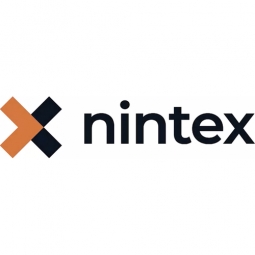Technology Category
- Analytics & Modeling - Machine Learning
- Platform as a Service (PaaS) - Application Development Platforms
Applicable Industries
- E-Commerce
- Equipment & Machinery
Applicable Functions
- Maintenance
- Quality Assurance
Use Cases
- Infrastructure Inspection
- Security Claims Evaluation
Services
- System Integration
- Training
About The Customer
Sime Darby Industrial is a high-growth organization that has been supplying heavy machinery to the construction and resource industries for over 90 years. The company is based in Australia and has a strong focus on safety and compliance in its operations. As part of its commitment to innovation and growth, Sime Darby undertook a digital transformation initiative to automate manual processes, reduce tech debt, and support the core pillars of its operation - customers, employees, and e-commerce. The company's progressive approach to digital adoption also led to the implementation of a citizen developer program, which has been highly successful in driving digital transformation across the organization.
The Challenge
Sime Darby Industrial, a leading supplier of heavy machinery to the construction and resource industries, was facing challenges in scaling its operations due to manual processes and a lack of digitization. The company was using multiple different form solutions to capture and input data, which was not only inefficient but also increased their tech debt. Safety and compliance processes, which are critical to the company's operations, were also heavily reliant on manual paperwork. Employees had to fill out paper forms to confirm it's safe to start work, which were then manually entered into a spreadsheet. This process was time-consuming and prone to errors. The company needed a solution that could automate these processes, reduce tech debt, and allow them to scale rapidly in a fast-moving environment.
The Solution
Sime Darby embarked on a digital transformation initiative, which included the automation of multiple manual processes. The company used Nintex to enable forms to be completed online, processed, and approved using workflow. This included Purchase Order approvals, IT Onboarding, and Leave applications. The digitization of these processes not only streamlined operations but also integrated with the company's ERP system, removing challenges associated with manual approvals. The company also digitized safety and compliance processes. Employees now complete digital forms to confirm it's safe to start work, with hundreds of thousands of forms being submitted via the new digital solution in the first year of production. The company also implemented a citizen developer program, which allowed staff to contribute to the digital transformation initiative, with IT retaining control of releasing all new projects to production.
Operational Impact
Quantitative Benefit

Case Study missing?
Start adding your own!
Register with your work email and create a new case study profile for your business.
Related Case Studies.

Case Study
Smart Water Filtration Systems
Before working with Ayla Networks, Ozner was already using cloud connectivity to identify and solve water-filtration system malfunctions as well as to monitor filter cartridges for replacements.But, in June 2015, Ozner executives talked with Ayla about how the company might further improve its water systems with IoT technology. They liked what they heard from Ayla, but the executives needed to be sure that Ayla’s Agile IoT Platform provided the security and reliability Ozner required.

Case Study
IoT enabled Fleet Management with MindSphere
In view of growing competition, Gämmerler had a strong need to remain competitive via process optimization, reliability and gentle handling of printed products, even at highest press speeds. In addition, a digitalization initiative also included developing a key differentiation via data-driven services offers.

Case Study
Predictive Maintenance for Industrial Chillers
For global leaders in the industrial chiller manufacturing, reliability of the entire production process is of the utmost importance. Chillers are refrigeration systems that produce ice water to provide cooling for a process or industrial application. One of those leaders sought a way to respond to asset performance issues, even before they occur. The intelligence to guarantee maximum reliability of cooling devices is embedded (pre-alarming). A pre-alarming phase means that the cooling device still works, but symptoms may appear, telling manufacturers that a failure is likely to occur in the near future. Chillers who are not internet connected at that moment, provide little insight in this pre-alarming phase.

Case Study
Premium Appliance Producer Innovates with Internet of Everything
Sub-Zero faced the largest product launch in the company’s history:It wanted to launch 60 new products as scheduled while simultaneously opening a new “greenfield” production facility, yet still adhering to stringent quality requirements and manage issues from new supply-chain partners. A the same time, it wanted to increase staff productivity time and collaboration while reducing travel and costs.

Case Study
Integration of PLC with IoT for Bosch Rexroth
The application arises from the need to monitor and anticipate the problems of one or more machines managed by a PLC. These problems, often resulting from the accumulation over time of small discrepancies, require, when they occur, ex post technical operations maintenance.

Case Study
Data Gathering Solution for Joy Global
Joy Global's existing business processes required customers to work through an unstable legacy system to collect mass volumes of data. With inadequate processes and tools, field level analytics were not sufficient to properly inform business decisions.







